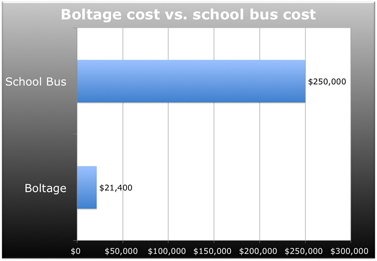


Along with the Public Safety Commission, other Cupertino commissions have worked on walking and biking programs as well.
“The [Cupertino] Teen Commission worked on a project last year called Walk One Week,” Cupertino Teen Commission staff liaison Lauren Phillips said. “And they focused on the elementary and middle schools because we understand that [high school students] don’t want to give up their cars because they are newly-licensed people.”
According to Public Safety Commission chair Daniel Nguyen, the problem with current walking and biking programs is that they rely on volunteers.
“The obstacle to making the program successful is keeping track of which kids walk and bike to school every single day,” Nguyen said. “You have to have volunteers at every entrance. It’s just a nightmare.”
With Boltage, the trips of students will be accurately and automatically recorded by sensors, rather than by volunteers who may miss students occasionally or count them twice by accident. In addition to accuracy, Boltage will bring other benefits, such as extending the duration of programs such as Walk One Week and saving money.
“The thing about volunteers is that the program breaks down if you can’t put out volunteers every time,” Nguyen said. “Boltage will keep track of students the whole year. It extends the scope of a program from one day or one week all the way to the [entire] school year.”
According to Nguyen, the equipments cost $8,005 at Lincoln and $13,395 at Kennedy. Lincoln needed just one sensor while Kennedy required the installation of two sensors, incurring about $5,000 more in expenses. Nevertheless, the cost was minimal compared to the other alternatives, such as buying a school bus.
“It’s quarter of a million dollars on a single bus to take cars off the road versus just a few thousand dollars to take even more off,” said Nguyen.
By bringing more automation and accuracy, the Boltage system will make existing walking and biking programs even more useful and helpful for the community.
